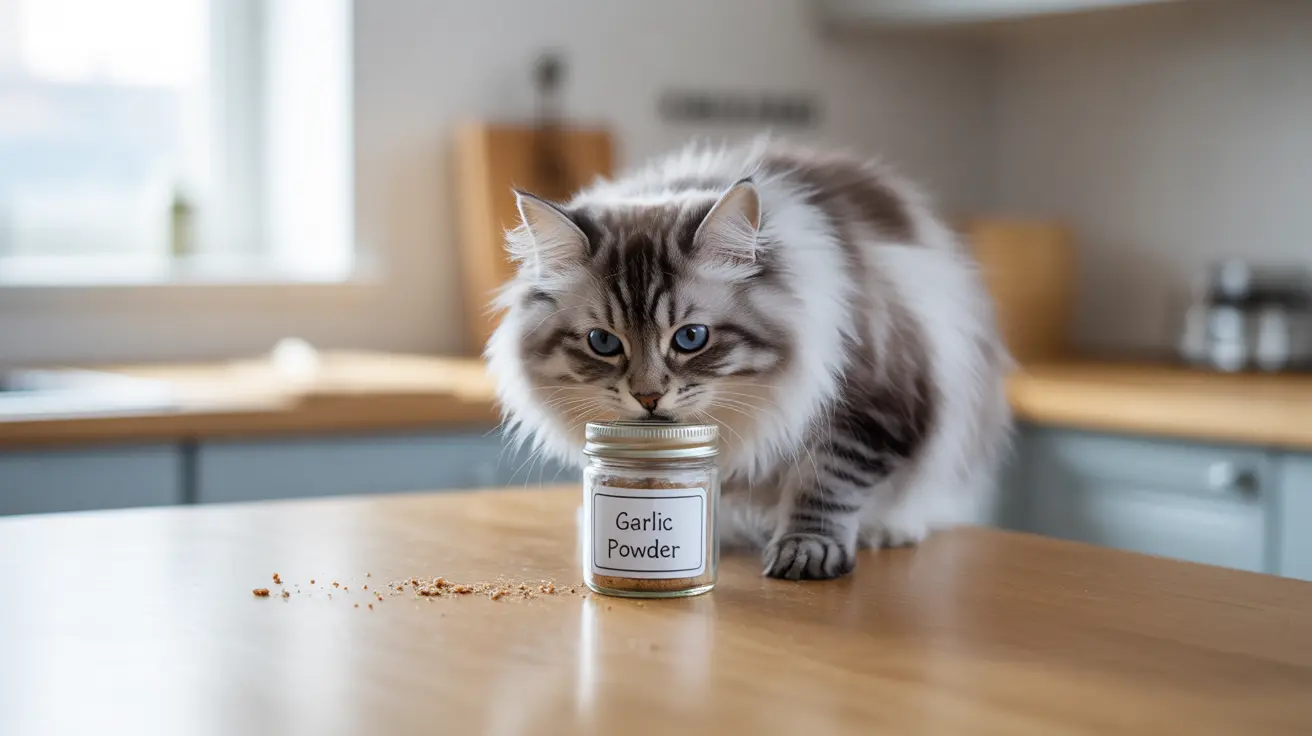If you're wondering whether cats can have garlic powder, the answer is a resounding no. Garlic powder, like all forms of garlic, is highly toxic to cats and can cause severe, potentially life-threatening health complications. Understanding why garlic is dangerous for cats and recognizing the signs of garlic poisoning could save your pet's life.
Understanding Garlic Toxicity in Cats
Garlic powder is actually more dangerous than fresh garlic due to its concentrated nature. The compounds in garlic, particularly sodium n-propyl thiosulfate and N-propyl disulfide, are toxic to cats. These substances attack and destroy red blood cells, leading to a serious condition called hemolytic anemia.
Even a tiny amount of garlic powder - as little as 1/8 teaspoon - can be harmful to cats. This makes it especially dangerous since it's commonly used in many human foods and some pet food products.
Signs of Garlic Poisoning in Cats
The effects of garlic poisoning aren't always immediate. Symptoms typically develop within 12 hours to 5 days after ingestion and may include:
- Weakness and lethargy
- Pale or yellowish gums
- Loss of appetite
- Vomiting and diarrhea
- Rapid breathing
- Dark-colored urine
- Collapse in severe cases
Why Garlic Powder is Particularly Dangerous
Garlic powder presents a unique risk because it's more concentrated than fresh garlic. One teaspoon of garlic powder can be equivalent to several cloves of fresh garlic. This concentration makes it easier for cats to receive a toxic dose, even from small amounts of seasoned food.
Emergency Response to Garlic Ingestion
If you suspect your cat has consumed any amount of garlic powder or garlic-seasoned food, immediate veterinary attention is crucial. Don't wait for symptoms to appear, as early intervention can prevent severe complications.
Treatment may include:
- Induced vomiting (only under veterinary supervision)
- Administration of activated charcoal
- Intravenous fluid therapy
- Blood transfusions in severe cases
- Supportive care and monitoring
Prevention Tips
To protect your cat from garlic poisoning:
- Keep all garlic products, including powder, securely stored
- Never season your cat's food with garlic powder
- Check ingredient lists on all human foods before sharing with your cat
- Inform family members and visitors about the dangers of feeding cats garlic
- Store emergency veterinary contact information in an easily accessible place
Frequently Asked Questions
Can cats safely eat garlic powder or any form of garlic?
No, cats cannot safely consume garlic in any form. All types of garlic, including powder, are toxic to cats and can cause severe illness or death.
What symptoms should I watch for if my cat accidentally ingests garlic or garlic powder?
Watch for lethargy, pale gums, weakness, vomiting, dark urine, rapid breathing, and loss of appetite. These symptoms may take 12-72 hours to appear.
How soon do garlic poisoning signs appear in cats after ingestion?
Symptoms typically develop within 12 hours to 5 days after ingestion, making it crucial to seek veterinary care immediately if you suspect garlic consumption.
What should I do if my cat eats food containing garlic or garlic powder?
Contact your veterinarian or emergency animal hospital immediately. Don't wait for symptoms to appear, as early treatment is critical for the best outcome.
Why is garlic more toxic to cats than other allium family members like onions?
Garlic contains higher concentrations of toxic compounds than other allium plants, making it 3-5 times more toxic to cats than onions.
Remember, when it comes to garlic powder and cats, it's always better to err on the side of caution. Keep all garlic products away from your feline friends and ensure their diet consists only of cat-safe foods approved by your veterinarian.






